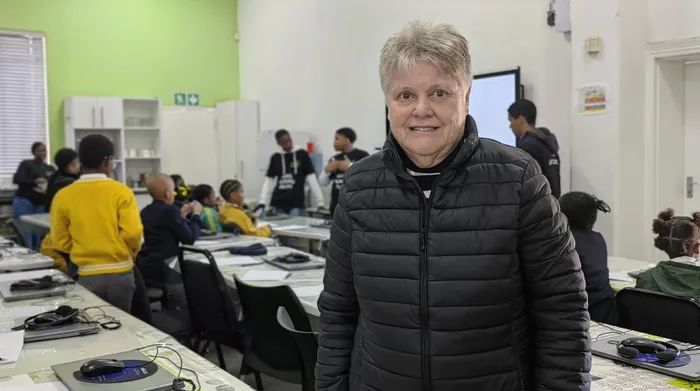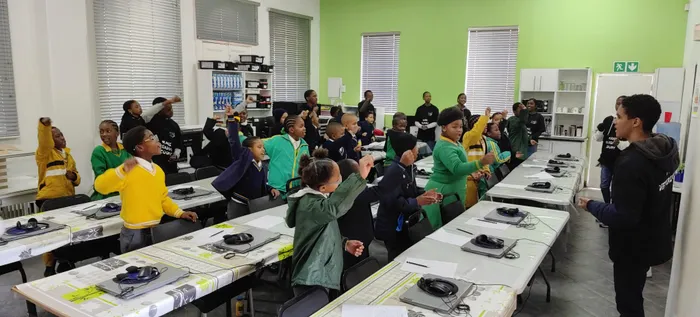Anne Maclean and MSLA tackle South Africa’s literacy crisis head-on

Anne Maclean, the Managing Director and Founder of the Maths & Science Leadership Academy (MSLA) in Kimberley, is on a mission. Her life’s work is centred around empowering young minds with the foundational tools they need to succeed: literacy, numeracy, and critical thinking.
Image: Danie van der Lith
In a country where learning poverty is robbing children of their futures, one woman is turning the tide, one learner at a time.
Anne Maclean, the Managing Director and Founder of the Maths & Science Leadership Academy (MSLA) in Kimberley, is on a mission. Her life’s work is centred around empowering young minds with the foundational tools they need to succeed: literacy, numeracy, and critical thinking.
Maclean’s passion for youth development is unmistakable. “Learning poverty in South Africa is a national crisis,” she says. “That’s why I created the MSLA, to give children the chance to take control of their future.”
The statistics paint a grim picture. According to the latest Progress in International Reading Literacy Study (PIRLS 2021), a staggering 81% of Grade 4 learners in South Africa cannot read for meaning. That’s an increase from 78% in 2016. The Covid-19 pandemic only deepened the crisis, with learners losing an estimated 60% of school time between 2020 and 2021. A decade of educational progress was swiftly undone.
“Learning poverty” refers to a child’s inability to read and understand a simple text by the age of 10. It’s a foundational skill that influences all other learning. If children cannot read for meaning, they cannot progress in subjects like science and mathematics. In South Africa, four out of five children are affected.
To address this, government-led and independent interventions have been introduced. The 2030 Reading Panel has called for a national reading plan and more support for teachers. Initiatives like Vula Bula (a phonics reader series), the African Storybook project, and Book Dash (which provides open-access picture books) are playing important roles. New strategies such as expanding bilingual mother-tongue education to Grade 6 and teacher coaching are also underway.
But Maclean and her team at MSLA are already making a measurable impact.

Learners are seen taking part in the MSLA programme on Wednesday.
Image: Danie van der Lith
Her academy goes beyond traditional tutoring. It offers a hands-on, immersive learning experience where children are not only taught to read and do mathematics but are also encouraged to think critically, ask questions, and take responsibility for their learning. The most remarkable part? Learners who have progressed through the programme often return as mentors, helping to teach and guide the next group of young minds.
“Watching learners take what they’ve learnt and pass it on to others is incredibly rewarding,” Maclean explains. “It proves that they’re not just absorbing knowledge but also gaining confidence, leadership, and a sense of purpose.”
The programme's design promotes teamwork, peer-to-peer support, and a genuine love for learning. “When you see how they light up during group work, how eager they are to answer questions and help one another, it’s a clear sign that the desire to learn is there. They just need a platform.”
And that is exactly what MSLA provides: a platform where young people are not defined by their circumstances but by their potential.
While national goals like ensuring all 10-year-olds can read for meaning by 2030 remain ambitious, leaders like Anne Maclean are proving that change is possible. Not through sweeping policy statements, but through passionate, grassroots action, day by day, learner by learner.
In a system battling chronic underfunding, political apathy, and educational inequity, MSLA stands as a beacon of what focused, community-driven intervention can accomplish.
Related Topics: